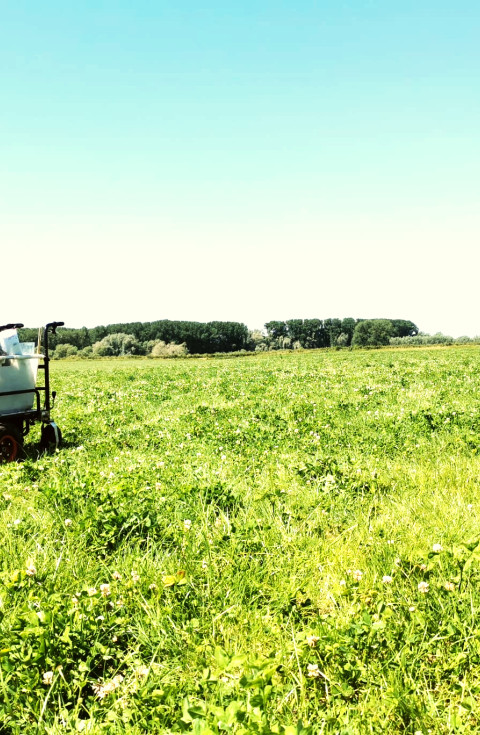Soil biodiversity analysis for sustainable production systems (SoilProS)

Aim of SoilProS
SoilProS will interpret big data on soil biodiversity, soil chemical and physical characteristics with respect to current and desired soil functions, and how to use this information in order to help farmers predicting which crop varieties, seed mixtures, (organic) fertilizers, soil inocula, and organic substrates enhance the environmental sustainability of their activities.
News about SoilProS
-
Nieuwsbrief April 2024
The Work Package 1 (WP1) team conducted their fieldwork in the summer months of 2021, 2022 and 2023. A total of 965 sites were visited where lots of different samples were gathered! These are now being analyzed, multiple parameters are being examined. An update was given to the participants in this newsletter.
The Work Package 1 (WP1) team conducted their fieldwork in the summer months of 2021, 2022 and 2023. A total of 965 sites were visited where lots of different samples were gathered! These are now being analyzed, multiple parameters are being examined. An update was given to the participants in this newsletter.
Societal context
Current agricultural practices largely bypass the role of biota and biodiversity in soils and substrates. The result is that food production systems increasingly emit greenhouse gases and nutrients, while being poorly buffered against drought and rainfall events, and soil-borne diseases. Restoring these important functions of soils and substrates is currently less limited by what we can measure than by how to interpret the data. SoilProS will solve this by using artificial intelligence-based machine learning to make soil/substrate biodiversity of food production systems predictable with respect to the effectiveness of practical measures that enable food production with fewer emissions to atmosphere, ground and surface water, greater water buffer capacity and disease suppressiveness.
Expected outcomes of SoilProS
- understanding how soil biodiversity relates to ecosystem multi-functionality in major soil types and land uses
- artificial intelligence (AI)-based machine learning that uses soil biodiversity data to predict practical measures that enhance ecosystem multi-functionality under given soil types and land uses
- experimentally tested AI-based predictions that will be fed back into machine learning
- co-created and tested action perspectives for farmers using soil and/or organic substrates in practice
Expected impact
SoilProS will provide fundamental building blocks for sustainable food production with increased soil health. Soil biodiversity is a key contributor to soil functionality. We want to conserve and improve soil biodiversity while stimulating sustainable agriculture. Within SoilProS we will: 1) examine the current state of soil biodiversity in Dutch agricultural systems, 2) analyze soil multifunctionality using data science, and 3) conduct greenhouse experiments with various soil amendments. By doing so we aim to contribute to increased agricultural sustainability in the Netherlands, considering the importance of the EU's new farm to fork strategy.
Research consortium
- Has green academy
- Institute for Biodiversity and Ecosystem Dynamics (UvA)
- Netherlands Institute of Ecology (NIOO-KNAW)
- University of Twente
- Utrecht University
- Wageningen University & Research


